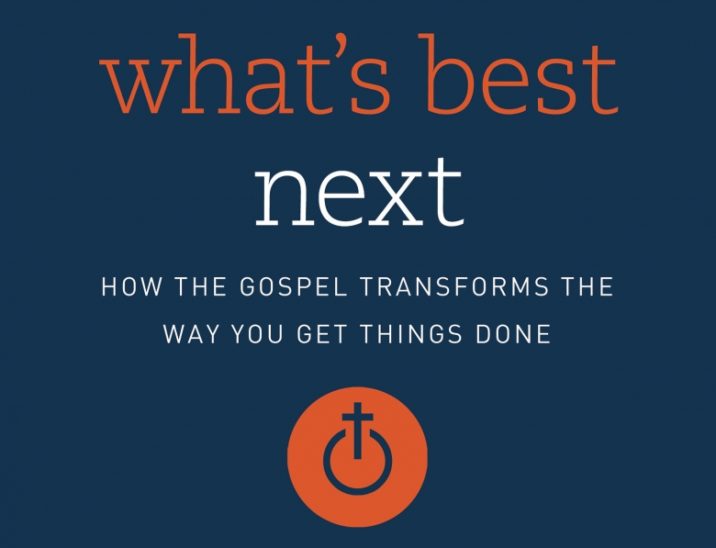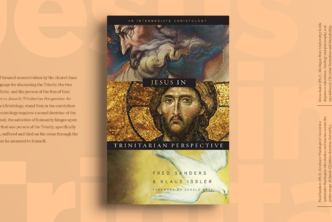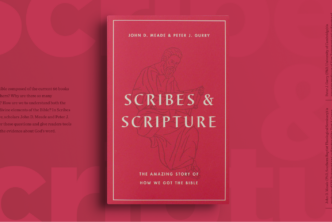Matt Perman deserves credit for helping a lot of people do more stuff. But that’s not the point of his book. Matt actually wants to equip you to do stuff that matters. We interviewed Matt recently on his exceptional time management book, What’s Best Next: How the Gospel Transforms the Way You Get Things Done.
Speaking personally, this book has been a game-changer for me as I balance family, PhD, work, exercise, artistic endeavors, ministry, sleep, really everything that goes into every single day to make it worthwhile. And, I know I’m not alone in that level of busyness. Enjoy the interview, and I encourage you to get your (digital) hands on this book now before the New Year arrives (or get a copy for your loved ones, they will thank you).
TB: How did the idea for this project come into your head, and what steps were necessary (and obstacles present) to see the book through to completion?

However, I had found that in order to do my work well at the ministry, I needed to learn about how to get things done. So I started reading books on productivity and found it very interesting and helpful. It stood out to me that there was almost nothing on this from a biblical perspective, so it seemed that this was a gap that needed to be filled—and which I could fill. So early on, I started developing my own approach to productivity with a view to trying to help others and share it with them. It made sense to make this my first book, as I didn’t want to see us as Christians to wait any longer to address this issue in detail. We all need it every day! The theological side of productivity as well as the practical must come together.
The biggest obstacles were two. First, I was (and am) a huge fan of Getting Things Done, but found there were a few snags with it. It took a lot of experimentation and trial and error to develop an approach that overcame those. I spent many years testing and refining my approach.
Second, developing the theological foundation was hard because there was almost nothing on this. So I had to take a lot of time to put in original thinking, test out ideas, and identify clearly what the Scriptures had to say on productivity and how to communicate that well. I went down a lot of dead ends, at least in terms of figuring out what seemed to me to be the clearest way to communicate things. I re-wrote the book twice, if I remember correctly!
TB: Explain the title of your book. Why not “What’s Best Now”?
MP: I took the phrase from one of John Piper’s mentors who said, “the key question of sanctification is not necessarily ‘what would Jesus do’ but ‘what’s best next?’” He then referred to Ephesians 5:15-17. This connection between time management and sanctification made so much sense, since after all time management is about the decisions we are making every moment—and isn’t that at the heart of how we live out our sanctification? So I titled the book “what’s best next” to echo this connection between time management and sanctification. It gives us a question we can use at any time to re-orient ourselves and get back on track, or to clear through the confusion of deciding among all the options before us. It’s not “what’s everything pressing on me to be done?” but “what’s best to do next?”
I suppose I could have called it “What’s Best Now”! But since there is always another thing to do (even if that “thing” is to rest and do nothing), “next” seems to get at the reality of the continual process that time management is.
TB: In the subtitle you use the term “transformation.” How does this connect to the concept of the Gospel as the engine behind the work that we do?
MP: One of the ways the gospel is the engine behind what we do is that, through faith in Christ, it gives us the joy and motives that empower us. Now, when your motives are from the gospel, that not only strengthens you but changes what you do and the way you do it. Your “why” doesn’t stand in isolation, but always changes your “what” and “how.”
First, it changes your “what.” If your motive is love (which is the motive the gospel gives us), there are certain things you won’t do that otherwise you might, and certain things you will do even though they are hard. For our goal is no longer ultimately our own welfare, but the welfare of others and Christ’s kingdom. So the motives of the gospel transform what we will be seeking to do altogether.
Second, the motive of love changes how we do things. Now our aim is not just to get tasks done (even the right ones), but to do them in a way that builds others up in the process. If we do our tasks in a way that builds others up, it transforms them in the process, as well as ourselves. They grow, as well as receive benefits from the work being accomplished. Love has a transforming effect. This is part of God’s plan for changing the world.
TB: Why does our work really “matter” if we’re going to just go to heaven some day anyway? What’s the point?
MP: So many reasons! The biggest is perhaps: God is renewing all things, not just the spiritual (Colossians 1:20; Revelation 20-22). God’s redemption is holistic—it has to do with the physical as well as the spiritual—and so all types of work matter.
Further, I believe that the work we are doing now, in Christ, is used by God to actually shape the culture of the renewed creation. So the work we are doing now will have an eternal impact and, in a certain way, will last forever. Paul Rude does an excellent job fleshing this out in his book Significant Work.
TB: You questions at points the value of lists, without dismissing them entirely. Why can lists be unhelpful for us, and what is the alternative to them?
MP: Lists work great for the abundance of small stuff we have to do. But it is hard to capture the more ambiguous, creative stuff we have to do in lists. Even an action item like “write chapter 3” is a far cry from what is actually involved in doing that task. So much is involved, much of it non-linear, that if you limit yourself to lists, those more ambiguous but extremely important tasks will often not find a place in your work and life. Lists easily incline you to the smaller stuff. That is important, but you also need to go beyond lists and schedule large chunks of time for creative exploration and more ambiguous but important tasks.
TB: The page in your book I return to frequently is the “time map” for setting up a weekly schedule. I found it incredibly helpful for balancing PhD studies, family, work, and exercise. But I’m always falling short of the plan. How would you advise people, who are seeking to take control of their schedule for the glory of God, to address their inevitable and frequent shortcomings?
MP: Yes, I find myself very often falling short of the plan as well! My advice here is to give yourself grace. It is almost impossible to follow any plan of our own creation perfectly, because we are limited. Unexpected complications will arise and our time estimates can only ever be approximations. We should not be hard on ourselves for this because God is not. This takes the pressure off. Yes, make the best plans you can—even when not fully accomplished, it still puts you far ahead where you would be with no plans—but leave the results in God’s hands.
TB: Can you tailor your advice specifically to those who make their living as scholars, including professors and pastors? What do the principles in your book have to contribute to those of us who need to spend solid chunks of time reading and writing, yet end up struggling to balance research with family and teaching duties (not to mention exercise and sleep!).
MP: Those who make their living as scholars, which as you say includes pastors as well as professors, have a unique challenge. It’s what I brought up earlier in talking about lists: many of your tasks defy simple expression on a to-do list. And, they easily go beyond their limits and generate so many new, unforeseen tasks. When I read, for example, it generates ideas I want to journal on, emails I want to write to people, concepts I want to refer to in other books, blog post ideas, and on and on. I can never predict what will happen in advance. I often find it best to do as many of those as I can in the moment, and so the time I am giving to the reading expands.
This is OK. But, it can also easily overwhelm you. Smaller, administrative tasks can take a back seat. On the other hand, when I focus on the more administrative stuff, I find that it expands and crowds out reading and writing.
And so my counsel is to create a basic framework to your day and week with time zones (the “time map” you mention above). Do this with only 70% of your week at most, to allow for the unexpected. Schedule daily time to handle administrative stuff together, and get it done quickly through high focus. Then, move to reading and writing and give your full focus there. If more administrative things that need to be done occur to you, write them down on a list and refer to that list in your next administrative zone. This allows you to forget about them because you are confident you will do them, and you can stay focused on the more creative, ambiguous research and writing tasks.
Have boundaries to these zones. Keep the boundaries flexible, but don’t run over them as though they are non-existent. In your basic schedule, include time for family and rest and teaching and exercise. When tempted to skip a zone, don’t. By sticking with the framework in general, you will get better at it and it will work. It will become a habit and second nature to stick with this generally balanced framework.
TB: You were able to secure interviews with some of the rockstars proponents of time management techniques (Seth Godin, Michael Allen et al), but also some big names in theological circles (Al Mohler, Michael Horton). What would you say is a singular defining characteristic of these people that enables them to accomplish so much more than most of us?
MP: Their defining feature is that they are able to go to the heart of things. They see the key ideas on a subject, which gives a framework and mental model that enables them to focus more fully on what is most important. This is why they write so clearly and powerfully. Then, they do the same with their time. They are able to identify the few key things they ought to be giving their time to, and give those things their main focus. They are incredibly disciplined, sure, but they use this discipline in service of a few major themes the Lord has given them to trumpet and focus on in their lives.
TB: What’s Best Next was published recently but a lot has happened in tech et al. in just a few years’ time. What would you change or amend to the book as we are approaching 2019 and beyond? Would newer technologies and apps such as AI and otherwise cause you to rethink some of your advice concerning productivity and the underlying principles you promote?
MP: I am happy that in general the principles enable us to adapt to new apps and changes on the tech scene well. I would actually like to add some advice for how to make productivity apps better.
But most of all, I might include a chapter on AI and why, despite some sensationalistic claims to the contrary, it can never take all of our jobs. Those who think it will are failing to grasp the human element of work—the emotional component, and the fact that we are called not just to get things done, but do them in a way that affirms the value of people and builds others up in the process. Computers and AI can never have that component, because they have no self-awareness and no emotions. I’ve even seen some claims that in the future, some companies will be run by AI, rather than a human CEO. That might seem efficient and superior, but would people really follow such a CEO? Leadership matters, not just analysis and efficient task accomplishment. Computers cannot lead. Leadership by definition requires emotional connection; that is not a “bug” in the nature of work, but a feature. You cannot eliminate it and still get done what we truly need to get done. Maybe an AI bot will run a company one day. But human-run organizations will still be essential because you cannot remove the human element from all work and still be doing all that truly needs to be done.
If efficiency is all that matters, why do people even exist at all? But, as I argue in chapter 2, efficiency is not all that matters. How we do things matters, and love and goodwill and emotional connection matter. When we realize this, we see humans will always excel AI in these areas, and we can develop a model of work that partners with the amazing increases in AI ability that are happening, without making people unnecessary.
Thanks, Matt!

What’s Best Next is now available for your Logos Digital Library, and with Logos you can take full advantage of the Notes feature to interact fully with this incredibly helpful and challenging book.






